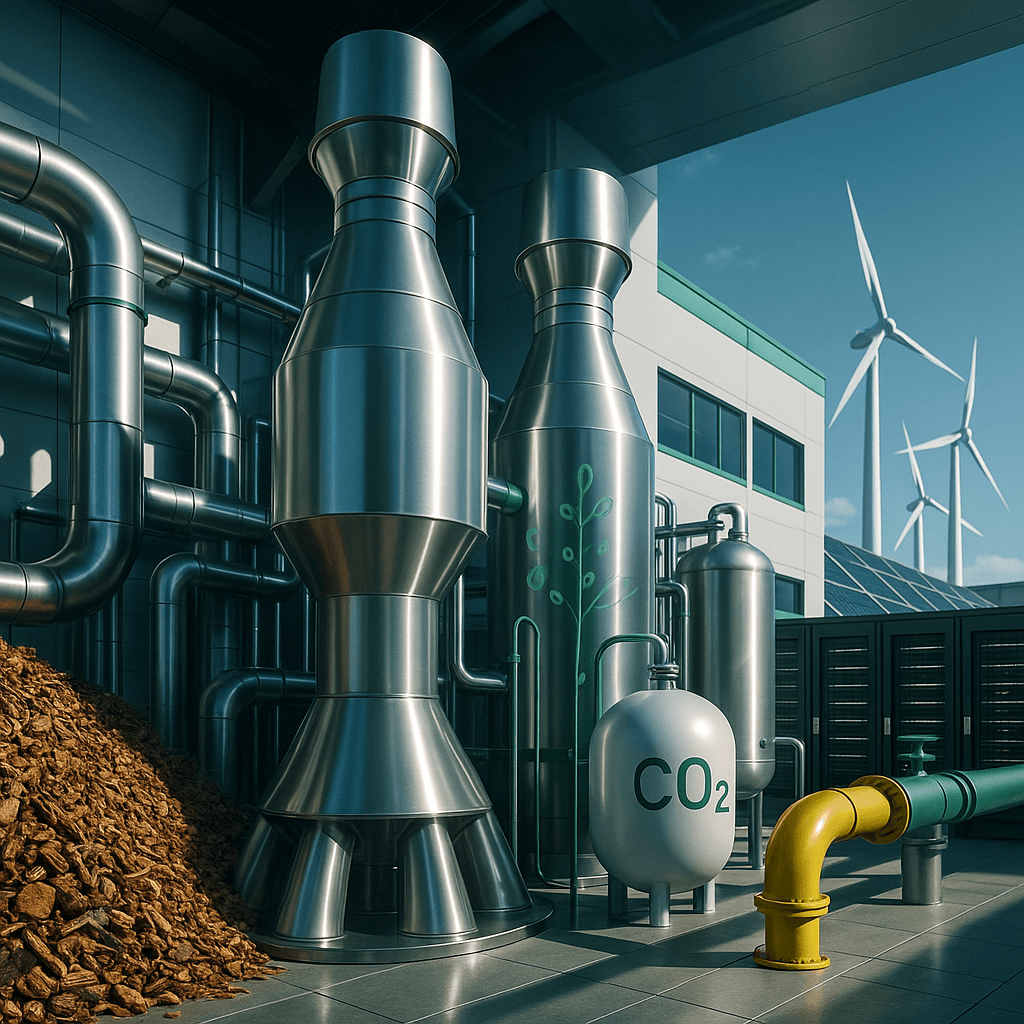The data center boom just forced a climate tech pivot. Arbor Energy, the startup founded by former SpaceX engineers using rocket technology for carbon-removing power plants, raised $55 million while quietly adding natural gas to its previously biomass-only fuel mix. The shift comes as AI's voracious appetite for electricity outpaces the availability of wood waste and agricultural scraps.
The AI boom's power crunch is reshaping even the most climate-conscious energy startups. Arbor Energy, which made headlines two years ago for developing what it called a "vegetarian rocket engine" power plant, just raised $55 million while quietly becoming an omnivore.
The Series A round, led by Lowercarbon Capital and Voyager Ventures, comes as the company admits its original biomass-only approach hit a wall against surging data center demand. Former SpaceX engineers had initially designed the system to burn only plant waste while capturing carbon dioxide - a clever marriage of rocket technology and climate goals.
But reality intervened this year as electricity demand from AI training and inference exploded across the industry. "The existing design was fully capable of powering AI servers, but its reach would be limited by sources of wood and agricultural waste," according to TechCrunch's reporting. Natural gas, meanwhile, flows through pipelines everywhere.
The technology pivot centers on Arbor's oxy-combustion system, which transforms hydrocarbons into synthetic gas before burning them in pure oxygen. This process produces concentrated CO2 that needs minimal processing for storage - a key advantage whether the fuel source is corn husks or methane.
"Because of tax credits, storing the CO2 will be cheaper than dumping the pollutant into the atmosphere," Arbor spokesperson Patrick Mahoney told TechCrunch. The company won't sell to customers who skip carbon capture, maintaining its climate credentials even while burning fossil fuels.
That climate calculus gets tricky with natural gas, though. Methane - natural gas's main component - generates 84 times more warming than carbon dioxide over 20 years when leaked into the atmosphere. Recent research shows leakage rates as low as 0.2% can make gas plants as climate-damaging as coal.
U.S. government estimates put supply chain leakage at around 1%, while satellite measurements suggest rates closer to 1.6%. Arbor says it's partnering with certified low-leakage natural gas providers, targeting carbon intensity below 100 grams per kilowatt-hour.












